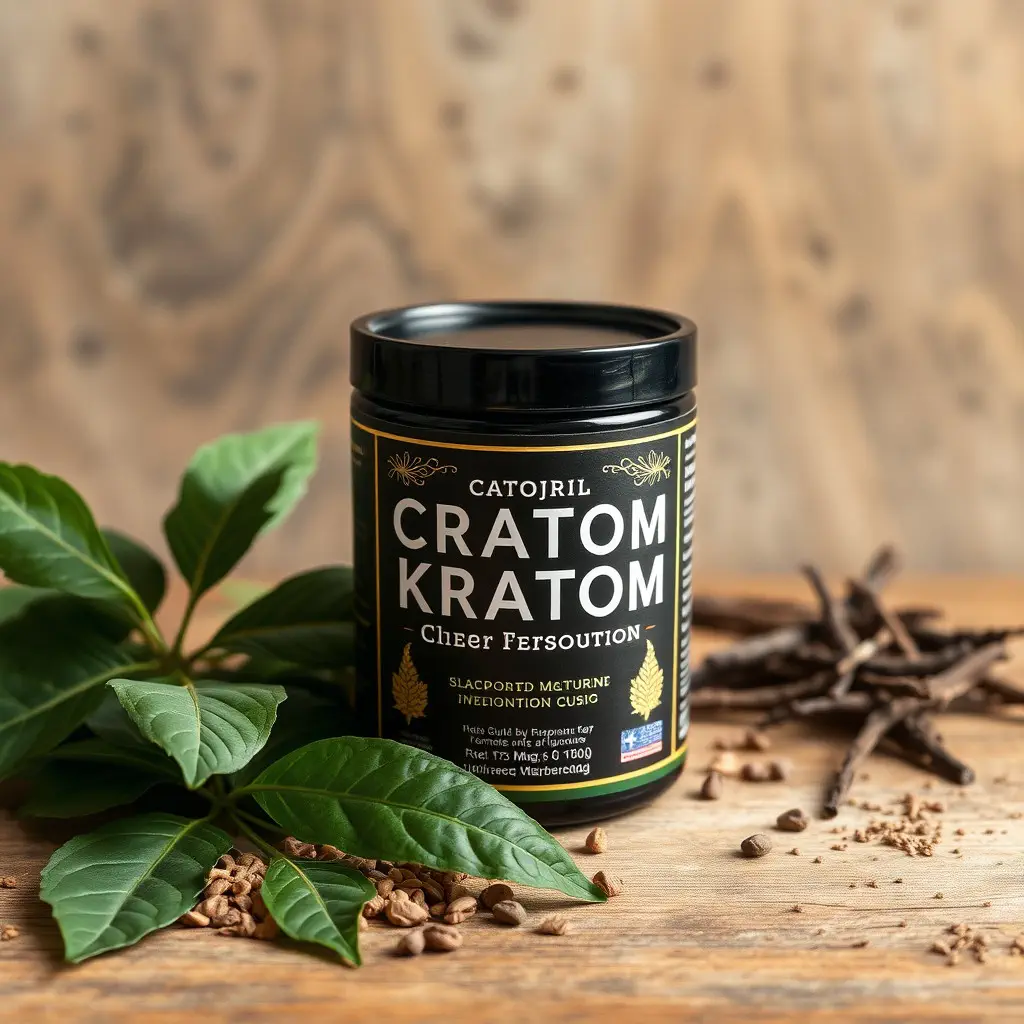Muscle soreness relief with kratom, derived from the Mitragyna speciosa tree, is highly beneficial for athletes and fitness enthusiasts engaging in strenuous training. Kratom's natural analgesic properties can help individuals endure workouts with less discomfort, particularly when combined with strategic goal-setting and mindfulness practices that enhance focus, motivation, mental clarity, and cognitive function to support endurance and performance. For those looking to manage muscle soreness like DOMS, kratom's active alkaloids, including 7-hydroxymitragynine and mitragynine, interact with opioid receptors to provide pain relief. Proper dosage and timing are critical for effective use, and it is essential to follow medical advice given individual differences in response. Kratom can help sustain training routines by alleviating post-exercise muscle soreness, leading to quicker recovery times and improved performance levels. Integrating kratom into a mental toughness regimen that includes cognitive-behavioral strategies, visualization, and stress management can synergize with its mood-boosting properties for enhanced pain management and mental resilience. However, it is imperative to approach the use of kratom responsibly, within legal boundaries, and under the guidance of a healthcare provider to ensure personalized and safe application in pursuit of peak physical and mental performance.
Embarking on a training regimen, especially one enhanced by kratom, demands not only physical preparation but also robust mental fortitude. This article delves into the art of mental toughness and how it can be honed through strategic practices, ensuring that your kratom-assisted workouts lead to peak performance and optimal muscle soreness relief with kratom. We’ll explore effective focus-sharpening techniques, the benefits of kratom in post-workout recovery, and the fine balance between natural supplementation and rigorous mental toughness training. Whether you’re a seasoned athlete or a fitness enthusiast, these insights will bolster your regimen for enhanced resilience and relief from muscle soreness.
- Mastering Mental Fortitude: Strategies for Enhanced Focus and Resilience During Kratom-Assisted Training
- Mitigating Muscle Soreness: The Role of Kratom in Post-Workout Recovery and Pain Management
- Integrating Kratom into Your Regimen: Balancing Natural Supplementation with Mental Toughness Training for Optimal Performance
Mastering Mental Fortitude: Strategies for Enhanced Focus and Resilience During Kratom-Assisted Training

Engaging in rigorous training, especially with the incorporation of kratom, requires a heightened state of mental fortitude to maintain focus and resilience. Kratom, a plant-based supplement derived from the Mitragyna speciosa tree, has been recognized for its potential to alleviate muscle soreness relief with kratom, thereby enabling individuals to push through intensive workouts without the hindrance of physical discomfort. To harness the full benefits of kratom for mental toughness, it is imperative to develop strategies that complement its effects. One such strategy involves setting clear and achievable goals, which can help maintain a strong sense of purpose during training sessions. This focus on objectives not only improves motivation but also allows for a more measured approach to the physical demands placed upon the body by kratom-assisted exercise regimens. Additionally, incorporating mindfulness techniques, such as deep breathing exercises or meditative practices, can enhance cognitive function and mental clarity, further supporting the individual’s ability to endure and thrive under the heightened physical stress that comes with using kratom in training. By integrating these mental fortitude strategies, athletes and fitness enthusiasts can optimize their performance and recovery, ensuring they can train consistently and effectively while leveraging the muscle soreness relief with kratom that the supplement provides.
Mitigating Muscle Soreness: The Role of Kratom in Post-Workout Recovery and Pain Management

Muscle soreness, often a result of intense physical exertion or the onset of a condition known as delayed-onset muscle soreness (DOMS), can significantly impede an individual’s training progress. Kratom, a botanical supplement derived from the leaves of Mitragyna speciosa, has been explored for its potential role in mitigating post-workout muscle soreness. The alkaloids present in kratom, particularly 7-hydroxymitragynine and mitragynine, may interact with opioid receptors in the body, offering natural pain relief. This interaction can help manage the discomfort associated with muscle strain or inflammation, allowing for a more efficient recovery process.
Incorporating kratom into a training regimen for muscle soreness relief involves careful consideration of dosage and timing. It is advisable to consult with a healthcare provider before integrating kratom into any fitness routine, as individual responses to kratom can vary widely. For those who opt to use it, the pain-relieving effects are most pronounced when taken before or after physical activity. This proactive approach to pain management not only supports recovery but also enables athletes and fitness enthusiasts to maintain a consistent training schedule without the interruption of debilitating muscle soreness. Users often report that kratom aids in reducing the intensity of the soreness they experience, thereby facilitating a quicker return to training at optimal performance levels.
Integrating Kratom into Your Regimen: Balancing Natural Supplementation with Mental Toughness Training for Optimal Performance

Integrating Kratom into a training regimen aimed at enhancing mental toughness requires careful consideration and balanced approach to optimize performance while mitigating muscle soreness. Kratom, derived from the leaves of Mitragyna speciosa, has been traditionally used for its stimulating or sedative effects, which can be instrumental in mental conditioning practices. For athletes and individuals seeking to push their limits, kratom may offer a natural alternative for pain relief associated with intense physical activity. Its alkaloids, such as mitragynine and 7-hydroxymitragynine, are believed to interact with the body’s opioid receptors, providing analgesic properties that can alleviate muscle soreness relief with kratom. When incorporating kratom into a mental toughness training program, it is crucial to monitor dosage and frequency to maintain performance levels without crossing into diminished returns or risk of dependency.
Pairing kratom’s potential pain-relieving effects with targeted mental resilience exercises can create a synergistic effect, enhancing the body’s ability to recover while simultaneously strengthening the mind’s capacity to cope with stress and pressure. Mental toughness training often involves cognitive-behavioral strategies, visualization techniques, and stress management practices, all of which can be complemented by kratom’s mood-elevating and pain-reducing qualities. However, it is imperative to approach the integration of kratom with caution, ensuring compliance with legal regulations and adherence to safety guidelines. Consulting with a healthcare provider beforehand is essential to tailor an individualized approach that aligns with one’s specific health profile and performance goals. By doing so, individuals can harness the benefits of kratom while maintaining their mental edge and physical well-being for peak performance.
Incorporating kratom into one’s training regimen can significantly enhance mental fortitude, offering strategies that bolster focus and resilience. As detailed in the article, kratom’s role in mitigating muscle soreness post-workout emerges as a key benefit for athletes seeking pain management and recovery. By integrating kratom judiciously within a structured training program, individuals can achieve balanced and optimal performance. The insights presented underscore the potential of kratom in alleviating muscle soreness relief with kratom, an aspect that warrants further research and exploration for those committed to peak physical and mental conditioning.






